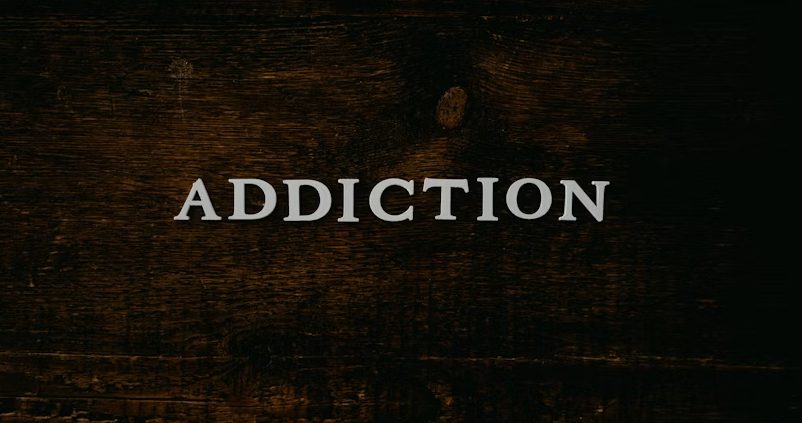
@ShahidNShah


Alcohol affects far more than just your liver. Even moderate drinking can impact your mood, metabolism, digestion, and ability to recover from workouts. It disrupts sleep cycles, increases inflammation, and can lead to subtle but chronic fatigue. When you’re working on becoming your healthiest self, alcohol can quietly pull you in the opposite direction. That’s why gaining control over your drinking habits without judgment is a powerful step toward overall well-being. Many people also start by taking an am I an alcoholic quiz or similar self-assessment to better understand their relationship with alcohol before making changes.
People grow more aware of how alcohol influences their health, and drinking apps have emerged as digital companions for smarter living. These aren’t rigid trackers or shame-inducing monitors. Instead, they’re intuitive, user-friendly platforms designed to foster mindfulness, offer gentle guidance, and support behavior change over time. With personalized feedback, goal setting, and real-time insights, these tools fit seamlessly into everyday life, helping users shift from autopilot to intentional living.
One or two drinks might seem harmless, but the ripple effects are real. Alcohol suppresses REM sleep, the most restorative stage of rest, leaving you groggy the next day. It also spikes cortisol levels, tampering with mood stability and increasing feelings of anxiety or irritability. Energy slumps, weakened immunity, digestive disruptions—these are all downstream effects of regular drinking. A healthier lifestyle begins when you start to connect how alcohol might be quietly compromising your physical and mental performance.
A drinking app is a digital platform that helps you track alcohol intake, set personal goals, and build healthier habits around consumption. Think of it as a wellness coach in your pocket, designed to guide, not guilt you into greater awareness. Many apps offer daily check-ins, drink logs, mood tracking, hydration reminders, and even educational content tailored to your journey. Whether you’re aiming to cut back or take a mindful pause, these tools help simplify the process.
Drinking apps aren’t just for people with alcohol dependence. They’re designed for anyone who wants to be more intentional, whether that’s cutting back during the week, participating in Dry January, or exploring a sober-curious lifestyle. Professionals managing stress to parents seeking more energy, from fitness lovers fine-tuning their performance to social drinkers wanting more control, these apps are built for real life and real people.
One of the biggest benefits of using a drinking app is personalization. You can set goals that match your lifestyle, like limiting drinking to weekends, cutting back by 30%, or reducing overall frequency. These custom goals serve as your compass. They make success measurable and manageable. And when you track your wins, no matter how small, it builds momentum and keeps you moving forward.
Humans are visual creatures. Seeing progress in graphs, streaks, or percentages can be surprisingly motivating. Drinking apps show your journey in clear, digestible visuals—how many alcohol-free days you’ve had, your average weekly intake, and how your mood aligns with your habits. This visual feedback reinforces progress, builds confidence, and helps you stay connected to your “why.”
Life gets busy. It’s easy to slip back into old routines without realizing it. That’s where daily reminders and encouraging messages come in. These nudges act as small moments of awareness, just enough to pause, reflect, and make a better choice. Over time, these reminders shift from external prompts to internal habits. And that’s when real transformation begins.
You don’t have to navigate change alone. Many drinking apps include anonymous communities or group challenges where users can share wins, ask questions, and support one another. This peer support removes isolation from the process. You realize others are on the same path, dealing with similar struggles, and celebrating similar victories.
Participating in challenges like “7 alcohol-free days” or “cut back by 50%” creates a shared experience. It turns personal change into a collective mission, adding accountability and a sense of belonging. We’re wired for connection. Shared goals make the journey more rewarding and far less intimidating.
Individuals using medication like Naltrexone or engaging in therapy, a drinking app offers additional structure and insight. It allows you to track how drinking changes over time, identify emotional triggers, and measure the impact of treatment. Apps don’t replace medical or therapeutic care, but they enhance it. They become daily tools that fill the space between appointments, keeping you grounded and engaged in your progress.
There’s still a lingering myth that only people with “a problem” need to cut back. That stigma keeps many from making changes that would benefit their health. But drinking reduction is for everyone. You don’t have to wait for a wake-up call. You can choose better sleep, better focus, better mornings starting now. Drinking less doesn’t mean something’s wrong. It means you’re choosing what’s right for you.
A healthier lifestyle isn’t built overnight. it’s created through small, consistent actions. Drinking apps help you make those changes stick. They give you insight, support, and encouragement when you need it most. Whether you’re cutting back, exploring sobriety, or simply becoming more mindful, these tools meet you where you are and help you grow into who you want to be.

How we see ourselves is deeply connected to how we feel. In recent years, healthcare professionals and researchers have been exploring the intricate relationship between body image and mental …
Posted Aug 6, 2025 Fundamental Technologies Mental Health
Connecting innovation decision makers to authoritative information, institutions, people and insights.
Medigy accurately delivers healthcare and technology information, news and insight from around the world.
Medigy surfaces the world's best crowdsourced health tech offerings with social interactions and peer reviews.
© 2026 Netspective Foundation, Inc. All Rights Reserved.
Built on Feb 20, 2026 at 3:27pm